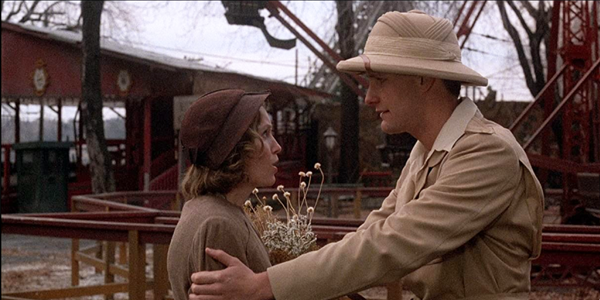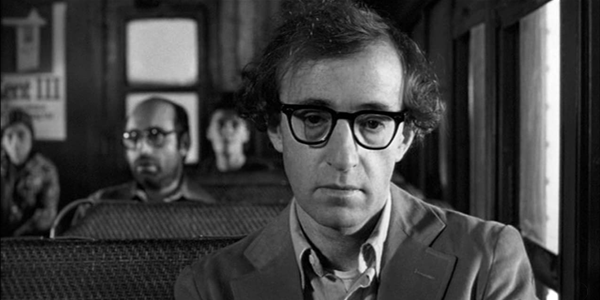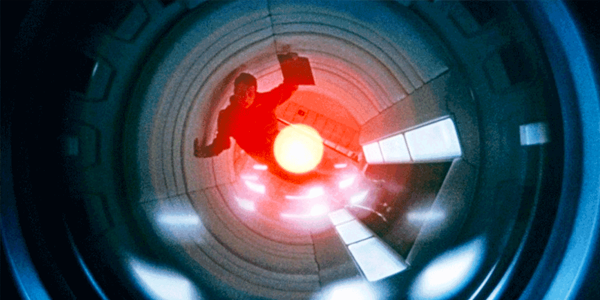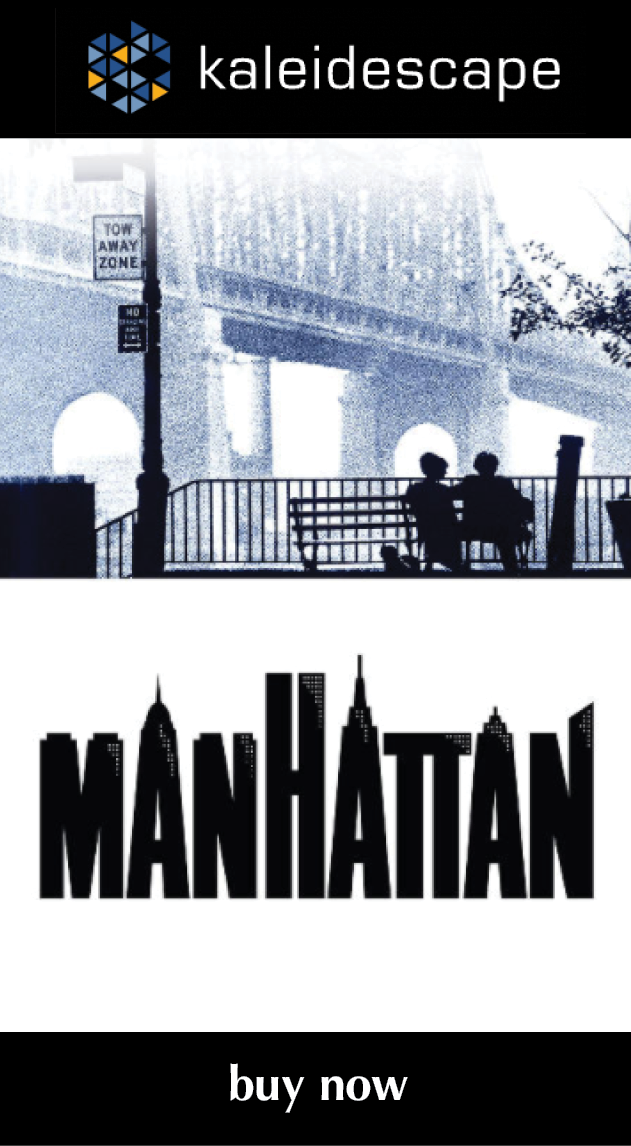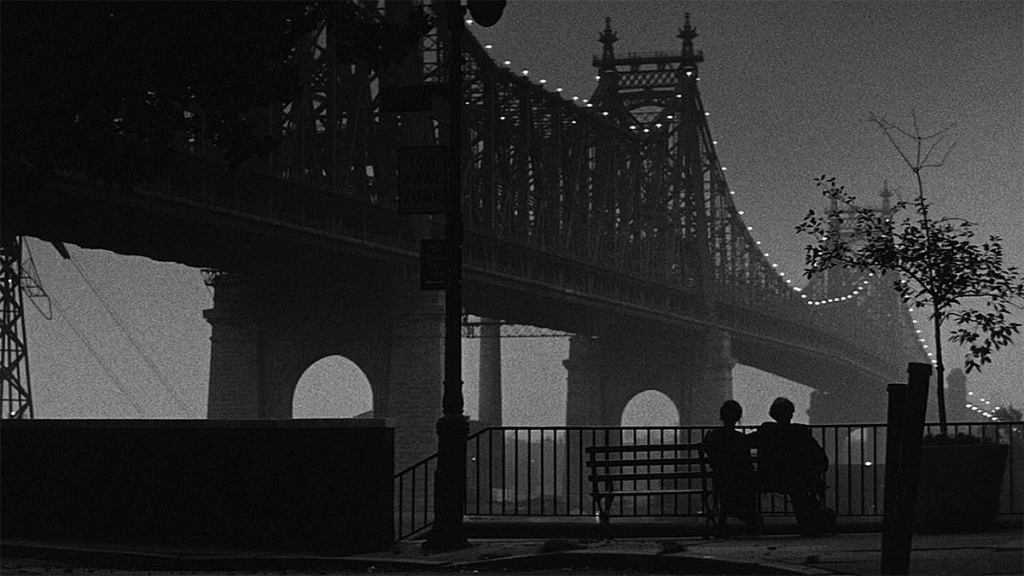
review | Manhattan
Woody Allen’s most ambitious and fullest film looks just fine in HD but cries out for a 4K reissue
by Michael Gaughn
January 31, 2021
Woody Allen has said his biggest regret is that he’s never made a great film. I’m not sure what his criteria are for determining that but by any yardstick I’m aware of, Manhattan is a great film, undeniably (to use a much abused and poorly understood term) a classic. It’s so strong it might even survive the efforts to erase his career, even though it’s frequently waved around as Exhibit A in the culture wars.*
Manhattan is Allen’s most ambitious work, the film where he completely rose to, and exceeded the level of, those ambitions. It and Annie Hall are his fullest movies. No matter how good any of his subsequent efforts have been, they’ve never been as generous, don’t have that same sense of flowing over. In no other film has he been as close to or confident with the material.
And yet Allen pleaded with United Artists not to release Manhattan. He’s never really explained why. It could just be that he doesn’t have a good perspective on his own work, which would help explain (and I’m not being facetious here) the shortcomings of many of his films.
While this is his fullest movie, nothing really happens in it—or it at least it seems that way if you’ve become addicted to melodrama and its crippled stepchild, adventure. But if you focus intently on each of the characters and can establish some common ground with them, their decisions and actions become significant and the film becomes a kind of intimate epic, with Manhattan, fittingly, as its landscape.
In any other city, this congruity between a handful of people and the totality of the urban environment would seem forced, but Manhattan being confined to an island allows Allen to put a frame around the action—literally. Doing a comedy in both 2.39:1 widescreen and black & white ran the risk of being gimmicky, but Allen and Gordon Willis pull it off partly because it’s a constant reminder of the city’s island status and mostly because it firmly establishes everything in the film as an extension of the Allen character, sealing the connection between individual and larger environment.
And the variety of the widescreen compositions is dazzling, ranging from macro—an elaborate fireworks display in Central Park South to Park Avenue in the snow to the justly famous image of the 59th Street Bridge at dawn—to micro: a group of creatives chatting at a reception at MOMA to the long take of Allen and Mariel Hemingway strolling through SoHo with Diane Keaton and Michael Murphy to Allen glimpsed at a distance through the slats of Venetian blinds as he sits on his terrace. By each composition being so apt and by creating such a seamless flow between them, Allen creates the sense that these people are New York (or at least best embody a certain, admittedly romantic, notion of the city.)
Maybe the most successful composition is the post-coital one of Hemingway laying on a couch in a pool of light from a lamp, bottom frame left, as Allen comes down spiral stairs almost in silhouette frame right. He and Willis turn a typical upscale apartment into both a stage set and a kind of palace without losing any of the intimacy—no small feat.
Their evocation of the city at night, of walking down deserted streets with most of the businesses closed for the evening as taxi cabs continue to stream down the avenues, is so convincing it’s uncanny. No one has ever done a better job of capturing the energy constantly simmering behind the quiet, that sense of possibility, of New York after dark.
This was Allen’s first comedy with traditionally structured scenes and a sustained narrative structure, and he applies the experience gained in the labored Interiors well. He was still learning the ropes of being an actor’s director, though, so while he and Keaton have no problems holding the frame, Murphy, Hemingway, and Anne Byrne (In a woefully underwritten role) don’t register as strongly as they should.
But those are quibbles. The film is so dynamic and so spot-on that it has a life of its own that makes its flaws seem inconsequential. That’s exceedingly rare in movies, and in a more just world, only those films where the cup runneth consistently over would ever be considered classics.
And now to the awkward part: Being able to savor Willis’s cinematography is a big part of the experience but Manhattan is in HD, and watching it on a 4K display will only make you ache to see it properly presented in UHD. Once you get past the opening montage, the irritating distractions of the upsampled high-def presentation are minimal and you rarely find yourself pulled out of the film (with one glaring exception). But that montage is so essential that it’s hard not to wince every time a large, uniform bright area in the frame becomes a crawling gnat infestation.
That glaring exception: The last three shots of Allen and Keaton walking through an exhibit at the Hayden Planetarium are so contrasty and over-processed they look like community-access chromakey. This isn’t even close to how these shots appear on film. Many of Allen’s movies deserve to be upgraded to 4K HDR but, given his current pariah status, that might take a while. When it finally does happen, though, Manhattan should be at the top of the list.
I know I’m a broken record about this but what can you really say about the sound in a movie where people basically just talk to each other for 90 minutes, offering a blissful retreat from the aural assaults we’ve unfortunately come to prize from surround sound? The all-Gershwin score sounds fine—although I wish Allen had been able to get just about anyone but Zubin Mehta to do Rhapsody in Blue.
The big question about Manhattan is why, having developed his character, his persona, and the city so fully, in a way that suggested so many more creative opportunities, did Allen essentially retreat? After Annie Hall and this film, he never really went down that path again. His character is in the forefront of Stardust Memories, but that’s not really a New York film. And while he explores similar territory in Hannah and Her Sisters, Crimes and Misdemeanors, and Husbands and Wives, he reduces his character to secondary status, to a kind of comic relief that almost makes him superfluous. I’m not saying he should have just kept churning out Manhattan retreads, but there’s an unshakeable sense that we all lost something vital when he decided to close that door.
(* I’m going here reluctantly, which is why I’m relegating these comments to a footnote, but the whole “You shouldn’t watch Manhattan because Allen’s character has a relationship with a 17 year old” thing has become such a flashpoint that you can’t mention—let alone praise—the film without addressing it. Let’s just leave it at this: There’s been a lot of smug commentary along the lines of “Audiences at the time of the film’s release didn’t have a problem with that relationship but we, from our morally superior viewpoint in the present, do.” First off, contemporary audiences did have problems with that relationship, which Allen deliberately introduced into the film to make them squirm and to get them to rethink what defines a relationship—something we no longer seem capable of doing unless it’s framed in terms of a bland and stultifying androgyny. Second, when a certain entitled subset of society hopelessly confuses fiction with reality and then feels it can put fetters on expression and decide what can and can’t be portrayed, we are indisputably at the end of empire.)
Michael Gaughn—The Absolute Sound, The Perfect Vision, Wideband, Stereo Review, Sound & Vision, The Rayva Roundtable, marketing, product design, some theater designs, a couple TV shows, some commercials, and now this.
PICTURE | Once you get past the opening montage, the irritating distractions of the upsampled high-def presentation are minimal and you rarely find yourself pulled out of the film.
SOUND | What can you really say about the sound in a movie where people basically just talk to each other for 90 minutes?
© 2025 Cineluxe LLC


